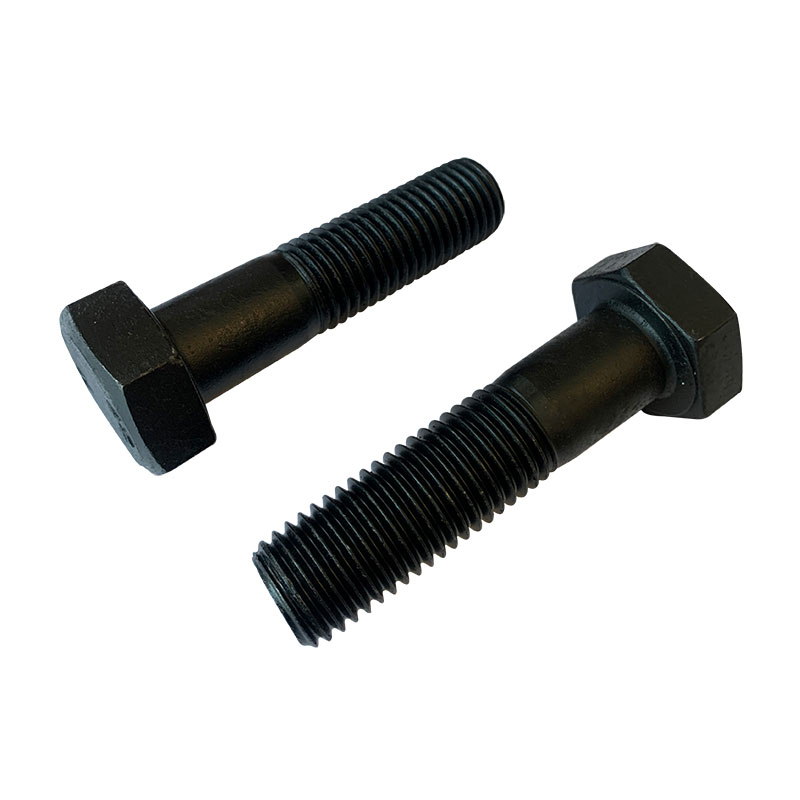The Ins and Outs of Plastic and Nylon Bolts: Applications and Limitations
2023-12-13
Introduction:
In the world of fasteners, metal bolts have long been the standard, known for their strength and durability. However, there are situations where plastic or nylon bolts step into the spotlight, offering unique advantages in specific applications. Let's explore when plastic or nylon bolts are used, their notable advantages, and the limitations that come with their distinctive characteristics.
Applications of Plastic and Nylon Bolts:
1. Corrosion-Free Environments:
Plastic and nylon bolts find their niche in environments where corrosion is a significant concern. Unlike metal bolts, these materials are naturally resistant to corrosion, making them ideal for use in wet or chemically aggressive settings.
2. Electrical Insulation:
One of the standout features of plastic and nylon bolts is their insulating properties. In applications where electrical conductivity is a critical consideration, such as in electronic assemblies or electrical enclosures, plastic or nylon bolts are preferred to avoid short circuits.
3. Lightweight Construction:
Plastic and nylon bolts are exceptionally lightweight compared to their metal counterparts. This makes them suitable for applications where weight is a concern, such as in aerospace or automotive industries, contributing to overall fuel efficiency and ease of handling.
4. Non-Magnetic Environments:
In environments where magnetic interference must be minimized, such as in sensitive electronic equipment, plastic and nylon bolts are chosen for their non-magnetic properties. This prevents any unwanted magnetic effects on nearby devices.
5. Low Vibration Applications:
Plastic and nylon bolts are often used in situations where dampening vibration is crucial. Their ability to absorb vibrations makes them suitable for applications like mounting components in electronic devices, minimizing the risk of damage caused by vibrations.
Limitations of Plastic and Nylon Bolts:
1. Lower Strength and Load Capacity:
One of the main limitations of plastic and nylon bolts is their lower tensile strength compared to metal bolts. They may not be suitable for high-stress applications or situations where substantial load-bearing capacity is required.
2. Temperature Sensitivity:
Plastic and nylon bolts have temperature limitations. They may not perform well in extreme temperatures, as they can deform or lose strength under high heat conditions. This restricts their use in applications requiring resistance to extreme temperature variations.
3. Thread Wear and Stripping:
Plastic and nylon bolts are more prone to thread wear and stripping, especially in applications involving frequent assembly and disassembly. Care must be taken to avoid over-tightening, which can lead to premature wear and compromise their effectiveness.
4. UV Sensitivity:
Exposure to ultraviolet (UV) radiation can degrade the integrity of plastic and nylon bolts over time. In outdoor applications, where prolonged exposure to sunlight is inevitable, these bolts may require additional UV-resistant coatings or periodic replacements.
5. Limited Chemical Resistance:
While plastic and nylon bolts offer good resistance to many chemicals, they may not be suitable for all chemical environments. Harsh chemicals can cause degradation, affecting the bolts' structural integrity and performance.
Conclusion:
Plastic and nylon bolts carve out a specialized role in the fastener landscape, offering unique benefits in certain applications. Their corrosion resistance, electrical insulation properties, lightweight nature, non-magnetic characteristics, and vibration-dampening abilities make them valuable in specific contexts. However, it's crucial to consider their limitations, such as lower strength, temperature sensitivity, thread wear, UV sensitivity, and limited chemical resistance, when choosing these materials for a particular application. As with any fastening solution, a thoughtful assessment of the specific requirements is essential to ensure the right choice for the task at hand.



